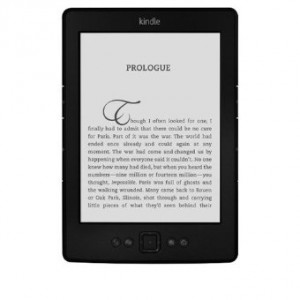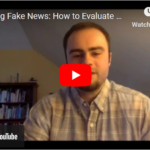 This week Wired published a provocative article about ebooks. In the piece, titled “The Abomination of eBooks,” author Art Brodsky points out how the applicable rules for ebooks are fundamentally different than those for print books; in particular ebooks are leased rather than actually bought and owned.
This week Wired published a provocative article about ebooks. In the piece, titled “The Abomination of eBooks,” author Art Brodsky points out how the applicable rules for ebooks are fundamentally different than those for print books; in particular ebooks are leased rather than actually bought and owned.
Because of this, he argues that it doesn’t make sense to even talk about ebooks as “books” since their use is in practice more like a software program. To make the point he suggested scrapping the familiar “bestseller list” in favor of a “most leased” list for ebooks.
Brodsky, a communications consultant and library advocate working with the American Library Association, then goes on to argue that ebooks are more than just illogical: they cause harm and “price people out of reading.”
He decries the proprietary formats and device limitations employed by ebook titans such as Amazon and Apple, which “reinforce the divide between haves and have-nots.”
Next he demonstrates the high prices that libraries must pay for ebooks, using Cuckoo’s Calling, the new pseudonymous JK Rowling work, as an example:
For the physical book, libraries would pay $14.40 from book distributor Baker & Taylor — close to the consumer price of $15.49 from Barnes & Noble and of $15.19 from Amazon. But even though the ebook will cost consumers $6.50 on Amazon and Barnes & Noble, libraries would pay $78 (through library ebook distributors Overdrive and 3M) for the same thing.
Note: this $78 price tag is only for one checkout and one reader at a time.
Brodsky argues that ebook terms for libraries unreasonably limit checkouts in general. Finally, he says that those who spend money on ebooks should have the same resell and lending rights that they would with a print book.
Some contrasting opinions emerged in the comments section, many misguided but others that raised interesting points:
If unlimited resell of ebooks was allowed there would be an ‘amazon’ for used ebooks created within weeks. Since most people who read an ebook don’t care about keeping it there would be ‘used’ copies cutting into new sales within days. Since there would be no difference between new and ‘used’ few would choose to pay for a new copy. Within days of a popular novel being released there could be tens of thousands of ‘used’ copies for sale. Market price then would be pushed down quickly meaning no one would make any money except for the first few days a book is out. I don’t know what the solution to the situation is but it’s not to allow reselling of ebooks. it would pretty much instantly make more writers than journalist unable to make a living from writing. source
As for the lending/reselling of ebooks, you do have that legal right. What you don’t have is the legal right to make a copy to lend/sell to someone while keeping a copy for yourself. Which is exactly the same as it is with paper books. It would not take an act of Congress to make lending/reselling easier. All it will take is for someone to come up with a system to do it that satisfies copyright law as far as the US Courts are concerned … No licencing agreement can override a person’s legal rights. (In) the MP3 resale court cases … not once has a court ruled that consumers lose their legal right under the first sale doctrine when they “agree to a licence”. They only state that the process in question does not satisfy copyright laws … The EULA cases for software (found) that the EULA provisions that state you can’t lend/resell under our rights under the 1st sale doctrine all depend on the type of initial sale. If it’s a sale (such as with eBooks) then that part of the EULA is not enforceable. source
This article has some excellent points, but please don’t overlook the self-publishing side of things. I’ve self-published a number of eBooks. They are all DRM-free (where it is an option) and my price to libraries is zero. I keep my ebook prices below five dollars, and offer two of them for free. People who buy my stuff are able to backup, copy, and lend as much as they like. The only thing I’m not able to allow is resale. Selling a physical book means handing over the item in question. Selling an ebook generates a copy, which makes it more akin to bootlegging than resale. A seller would thus need to be trusted to delete their own copy and all backups after selling, or else the copy would need to be regulated via DRM, which turns it back into a lease. source
Ebooks are an alternative…..nobody is taking paper books out of the hands of readers who want them. The article sounds like a suppressed rant against the whole idea of ebooks instead of touting the many conveniences of them as an alternative. source
What do you think about all of this? Do ebooks in general price people out of reading or can we make adjustments to the systems that are currently in place?




Leave a Reply